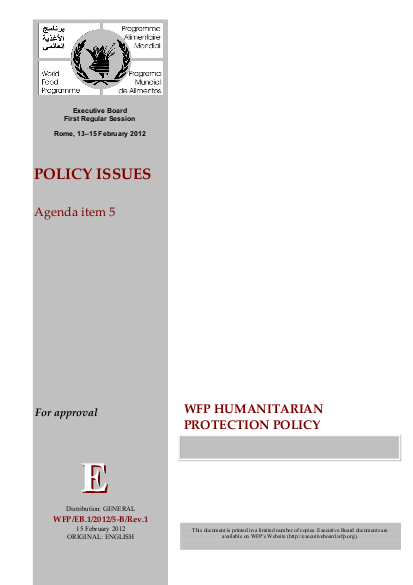
Increasingly complex political and security environments since the end of the Cold War have prompted the international community to find ways of reducing the suffering of civilians. In accordance with international law, States have the primary responsibility to protect all the people within their jurisdictions. The United Nations agencies also have a role to play in advocating humanitarian principles as they seek to promote the protection of the crisisaffected populations as stipulated under international law. There is also more discussion on protection within the United Nations and the wider humanitarian and development communities. In the context of humanitarian reform and subsequent adoption of the cluster approach, a larger pool of humanitarian actors – including WFP – are working together towards a more coherent response to the protection concerns of people affected by conflicts and natural disasters. In line with this, since 2005, WFP has been developing its capacity to understand and address protection concerns within the context of its mandate and operations. This policy document outlines what humanitarian protection means for WFP, and proposes directions for sustainable engagement aimed at making WFP’s presence safer and its assistance safer and more dignified. It complements United Nations efforts on the human rights-based approach to programming.